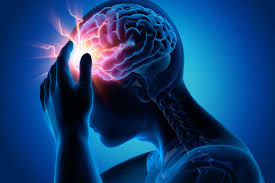WHAT TO KNOW ABOUT NEW JERSEY MARIJUANA
- flashlightbankers
- Sep 3, 2018
- 3 min read

With over 8.9 million residents, the state hosts a complex, diverse blend of culture, industry, and community.
New Jersey has legalized marijuana under limited circumstances. Medicinal use of marijuana began in 2010 when lawmakers in the state government passed a bill enacting the “New Jersey Compassionate Use of Medical Marijuana Act” (CUMMA), making marijuana consumption for medical purposes legal. Created to provide those with debilitating conditions access to alternative treatment, the Act has led to an impactful shift of public understanding and policy over marijuana. It appeared that the Act was structured to fail, and remains the most complicated and restrictive in the country. However, with the new administration under Governor Phil Murphy the "attitude" as shifted to allow a more flexible view with the intent to allow adult use above the age of 21.
Currently, the restrictive nature of the Act is highlighted by prohibiting any registered patient to operate a vehicle, train, aircraft, or equipment while using marijuana. Fines are up to $500, seven months to thirty days in jail.
New Jersey Dispensary Centers functions as the primary distribution outlet., dividing the state into three districts with at least two dispensaries or “alternative treatment centers” - the northern, central, and southern regions. Recently, the state has doubled the number of medical marijuana dispensaries from six to 12. Alternative treatment centers in New Jersey are only able to sell marijuana to patients actively registered in the New Jersey medical marijuana program. Becoming a medical patient requires a state-certified physician with an active controlled substances prescription license to sanction the patient. The flowing conditions are on the program's list: chronic pain caused by musculoskeletal disorders, muscular dystrophy, migraines, amyotrophic lateral sclerosis, terminal cancer, Tourette's Syndrome, inflammatory bowel multiple sclerosis, Crohn’s disease, muscular dystrophy, terminal cancer, Tourette's Syndrome, and anxiety, Post-Traumatic Stress Disorder (PTSD), epilepsy, skeletal muscular spasticity, and seizures and related disorders makes the grade. As for being diagnosed with HIV, AIDS, or non-terminal cancer, the patient needs to have severe or chronic pain, unadorned nausea or vomiting to get marijuana. Being less than 21 years of age makes getting legal marijuana almost impossible. All patients with an illness of fewer than 12 months of life expected are also qualified.
Smoking of marijuana in any public place is prohibited, follows the rules governing tobacco and vaping - including indoor clean air, in a school bus or on any school grounds, at any public park, recreational center, beach. No distinction for marijuana-infused products, allowing the assumption that valid patients could possess and consume medicated edibles or other marijuana-infused products in most public places without worry or concern.
An identification badge is required by employees who were performing marijuana-related activities at a treatment center, 21 or older, and not been convicted of a felony charge or any criminal drug-related offense, such as distribution. To gain approval, criminal background check and local character reference are needed
Once a patient is certified as having one of the diseases or conditions approved by the program, the state the physician is requires to submit a medication order to the dispensing location. No more than 1/4th an ounce (seven grams) of marijuana or the equivalent in marijuana-infused products are allowed. A maximum of two ounces is permitted in any 30-day period. However, if a person, whether patient or caregiver is found controlling 50 grams or less a fine up to $1,000 and six months in jail.
Only licensed facilities may grow marijuana. Anyone caught in possession of growing cannabis plants are subject to the mandatory minimum sentencing of $25,000 fine and five years in prison. Indeed, whether a doctor, marijuana worker or the other kind are caught with a mere one or two small plants can be penalized beyond commonsense values.
A registered patient cannot operate a vehicle, train, aircraft, or heavy equipment while under the influence of marijuana. Such person is subject up to 30 days of jail, a seven-month suspension of driving privileges, to fines up to $500. Caregivers cannot consume medical marijuana products under any condition, or transport the product over state lines. A charge of interstate drug trafficking is a federal offense.
New Jersey Marijuana Pricing and Economic Data Profile: From our data, the norm price per ounce of marijuana flower was $515, a range on average between $465-$525 per ounce. Using our SPM database for calendar 2017 sale are $29 million for the year. Since the state charges the general sales tax of 6.875% on medical marijuana sales, 2017 generated nearly $1.9 million in tax revenues, in addition to application fees and licensing costs, which brought in $1.1 million in 2017.




Comments